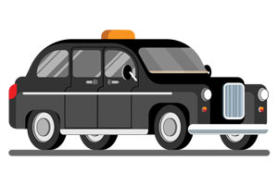Great Scott!
A Hollywood connection played its part in a surprising decision for DeLorean, says Ben Evans. O/317/16, DE LOREAN (Revocation, Opposition), UK IPO, 4 July 2016.

O/317/16, DE LOREAN (Revocation, Opposition), UK IPO, 4 July 2016
This case concerned consolidated opposition and revocation proceedings brought by DeLorean Motor Company of Texas (Texas) against an application for De Lorean/DE LOREAN (a series) in class 12 and an earlier registration for the same mark, also in class 12, both in the name of DeLorean Motor Company Ltd of Stockport (Stockport).
The opposition was brought under Section 5(2)(a) of the Trade Marks Act 1994 (TMA) based on alleged earlier unregistered rights in the De Lorean mark. The revocation application was brought under Sections 46(1)(a) and 46(1)(b) TMA for reasons of non-use.
The Hearing Officer heard from both parties, and found that there had been no genuine use of Stockport’s registered mark; thus, it was revoked pursuant to Section 46(1)(a) TMA. At the same time, the Hearing Officer found that Texas had failed to prove protectable goodwill in the UK, and thus rejected the opposition.
Appeal detail
Both parties appealed, and it fell to Professor Ruth Annand, the Appointed Person (AP), to render a decision.
The AP upheld the Hearing Officer’s decision in finding that there had been no genuine use of Stockport’s mark. The only uses that Stockport could identify were: (i) various parked domain names containing advertising that, over a six-year period, yielded less than €1 in revenue; (ii) a shared website that appeared to advertise two car parts (sills) as “DeLorean nearside sill” but for which no orders were received, nor sales made; and (iii) an enquiry from a potential supplier.
The Hearing Officer was of the view that none of these examples constituted use of Stockport’s class 12 trade mark. The parked domain name was at best a retail or portal service, the car part appeared to be descriptive of parts for DeLorean cars and the enquiry was entirely unrelated.
In dismissing Stockport’s appeal, the AP concluded that the Hearing Officer was entitled to arrive at the finding she did and that, even if the examples were to constitute use of Stockport’s class 12 mark, it was so limited in extent that it could not constitute genuine use.
Texas relied on unregistered rights in certain variations of DE LOREAN (and similar) first used in the UK in 1995 for certain clothing and memorabilia, and since 1999 in relation to class 12 goods including parts and fittings for motor vehicles. While it had no physical base in the UK, it did have evidence: modest sales to the UK, a website offering goods for sale and marketing in the UK (through attending DeLorean owner events).
The Hearing Officer rejected the opposition, finding that Texas had failed to demonstrate a protectable goodwill in the UK and, instead, merely had a reputation. However, the AP found that this decision was “arrived at in error”, and that the niche nature of the DeLorean spare-parts market combined with the accepted reputation of Texas in the UK was sufficient for Texas to demonstrate a protectable goodwill in the UK, even though this reputation was, in part, due to the sale of clothing and memorabilia rather than car parts.
Interesting extension
The AP’s decision in upholding the revocation decision is not surprising given the type and extent of use demonstrated by Stockport. What is more interesting is the AP’s confirmation that reputation built, at least in part, through the use of a mark on items of clothing and memorabilia can be used to demonstrate a protectable goodwill in that mark for other goods.
Ben Evans is an Associate and Trade Mark Attorney at Blake Morgan LLP

